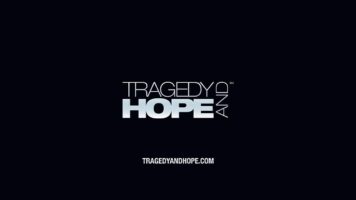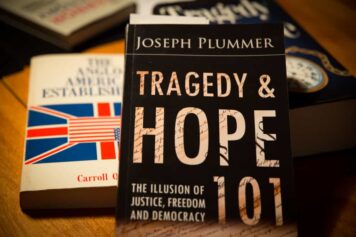Guilty Until Proven Innocent: The Tort of Defamation
Author: Lisa Arbercheski•May 20, 2014
Tags:BoilingFrogsPost, Civil, corbett, defamation, guilty, innocent, james, law, legislation, liberty, proven, reform, report, Tort
Early 20th century writer Franz Kafka was known for creating unsettling stories of characters set upon by unseen forces, caught in the labyrinth of modern-day bureaucracy. A lawyer by training, this sense of angst is perhaps best exemplified in his famous novel, The Trial, in which a man is charged with an unnamed transgression by an unknown accuser in an unofficial parallel court system that begins to take over his entire life. This is the essence of the Kafkaesque.
Although often read as an existential critique of modern life, as the unlucky few who are put through the courts can often attest, the Kafkaesque is alive and well in the common law courts of the supposedly civilized western world. One of the clearest examples of this phenomenon can be found in the courts of Canada, the UK, and similar jurisdictions over the tort of defamation.
As Professor Denis Rancourt of UofOWatch explains, defamation laws are an historical relic of the age of nobility and reflect an exact inversion of the core tenet of western jurisprudence, that a defendant is innocent until proven guilty.
As Rancourt goes on to point out, defamation laws retain their historical roots by remaining almost exclusively the tool of the rich and powerful to squelch criticism by the poor and powerless.
Sadly, specific examples of exactly how this law is used to silence political discussion of all stripes are by no means difficult to find. A recent example in the Canadian political context is particularly egregious.
In 2001, Connie and Mark Fournier founded FreeDominion.ca as a forum for Canadians to discuss political issues. In January of this year the forum was shuttered after 13 years of operation when Richard Warman, a human rights lawyer, was awarded $127,000 in damages and legal expenses for comments that were posted to the website by anonymous forum users. Despite having deleted the comments from the website in 2009, the Ontario Superior Court ruled in Warman’s favour, barring Free Dominion from ever repeating any of the defamatory comments “in any manner whatsoever” and effectively censoring the website from the face of the internet.
The chilling effect of this ruling in particular, and similar rulings in general, is palpable in the Canadian blogosphere. Even the Ottawa Citizen, the only major Canadian media entity to report on the case, chose to close the comment section on the article. In an environment when anyone, anywhere can leave any comment on a blog that, even if removed within minutes, can still be used to successfully prosecute the webmaster, the hosting provider, the service provider, or anyone else even remotely related to the “publication” of that comment for defamation, no possibility of free speech or public political debate can exist.
There are efforts to reform the system as it exists in a number of jurisdictions. In Ontario in particular there is Bill 83, an act to amend the existing slander legislation, ostensibly to foster free expression and discourage the use of litigation in stifling criticism. As the Ontario Civil Liberties Association points out in a position paper on the bill, however, Bill 83 would not address the root issue, leaving the dismissal of defamation lawsuits to the judge’s personal opinion of whether the case has “public interest” and thus further perpetuating the fundamental problem of power disparities and the arbitrary nature of defamation itself. As the OCLA concludes, no real progress will be made on the subject unless the current interest in Bill 83 is instead used “to conduct a thorough public examination of defamation law, its pernicious impact on freedom of expression and its deleterious impact on our society.”
Until such an examination takes place, the sad fact is that the court system will remain a tool of oppression for the powerful against the powerless the likes of which not even Kafka could have imagined.
by James Corbett
BoilingFrogsPost.com
May 20, 2014
Early 20th century writer Franz Kafka was known for creating unsettling stories of characters set upon by unseen forces, caught in the labyrinth of modern-day bureaucracy. A lawyer by training, this sense of angst is perhaps best exemplified in his famous novel, The Trial, in which a man is charged with an unnamed transgression by an unknown accuser in an unofficial parallel court system that begins to take over his entire life. This is the essence of the Kafkaesque.
Although often read as an existential critique of modern life, as the unlucky few who are put through the courts can often attest, the Kafkaesque is alive and well in the common law courts of the supposedly civilized western world. One of the clearest examples of this phenomenon can be found in the courts of Canada, the UK, and similar jurisdictions over the tort of defamation.
As Professor Denis Rancourt of UofOWatch explains, defamation laws are an historical relic of the age of nobility and reflect an exact inversion of the core tenet of western jurisprudence, that a defendant is innocent until proven guilty.
As Rancourt goes on to point out, defamation laws retain their historical roots by remaining almost exclusively the tool of the rich and powerful to squelch criticism by the poor and powerless.
Sadly, specific examples of exactly how this law is used to silence political discussion of all stripes are by no means difficult to find. A recent example in the Canadian political context is particularly egregious.
In 2001, Connie and Mark Fournier founded FreeDominion.ca as a forum for Canadians to discuss political issues. In January of this year the forum was shuttered after 13 years of operation when Richard Warman, a human rights lawyer, was awarded $127,000 in damages and legal expenses for comments that were posted to the website by anonymous forum users. Despite having deleted the comments from the website in 2009, the Ontario Superior Court ruled in Warman’s favour, barring Free Dominion from ever repeating any of the defamatory comments “in any manner whatsoever” and effectively censoring the website from the face of the internet.
The chilling effect of this ruling in particular, and similar rulings in general, is palpable in the Canadian blogosphere. Even the Ottawa Citizen, the only major Canadian media entity to report on the case, chose to close the comment section on the article. In an environment when anyone, anywhere can leave any comment on a blog that, even if removed within minutes, can still be used to successfully prosecute the webmaster, the hosting provider, the service provider, or anyone else even remotely related to the “publication” of that comment for defamation, no possibility of free speech or public political debate can exist.
There are efforts to reform the system as it exists in a number of jurisdictions. In Ontario in particular there is Bill 83, an act to amend the existing slander legislation, ostensibly to foster free expression and discourage the use of litigation in stifling criticism. As the Ontario Civil Liberties Association points out in a position paper on the bill, however, Bill 83 would not address the root issue, leaving the dismissal of defamation lawsuits to the judge’s personal opinion of whether the case has “public interest” and thus further perpetuating the fundamental problem of power disparities and the arbitrary nature of defamation itself. As the OCLA concludes, no real progress will be made on the subject unless the current interest in Bill 83 is instead used “to conduct a thorough public examination of defamation law, its pernicious impact on freedom of expression and its deleterious impact on our society.”
Until such an examination takes place, the sad fact is that the court system will remain a tool of oppression for the powerful against the powerless the likes of which not even Kafka could have imagined.











